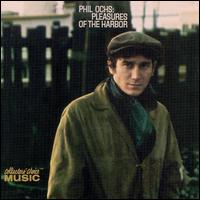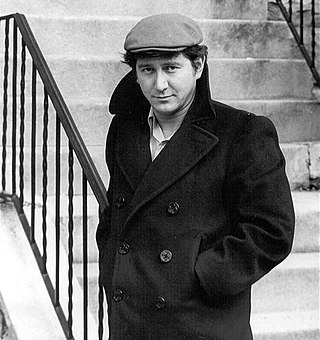
Philip David Ochs was an American songwriter and protest singer. Ochs was known for his sharp wit, sardonic humor, political activism, often alliterative lyrics, and distinctive voice. He wrote hundreds of songs in the 1960s and 1970s and released eight albums.
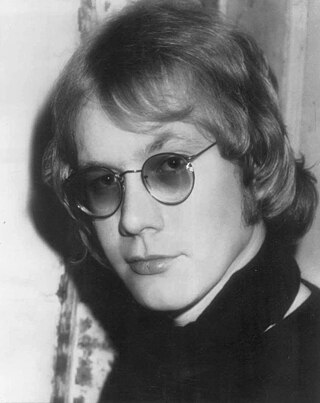
Warren William Zevon was an American rock singer, songwriter, and musician.

Warren Zevon is the second studio album by American musician Warren Zevon. This album was recorded in 1975 and released on May 10, 1976, by Asylum Records. A remastered version of the album with special bonus tracks was released in 2008 by Rhino Records.
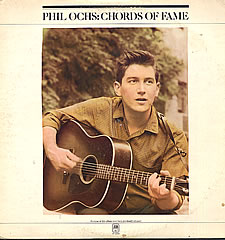
Chords Of Fame was a 2-LP compilation of folksinger Phil Ochs' career, compiled by his brother shortly after Ochs' death in 1976. Released on A&M Records, it compiled tracks Ochs had recorded for both that label and Elektra Records. The compilation included several rarities:

Sings For Broadside, alternatively known as Broadside Ballads, Vol. 10, was a 1976 compilation of songs that Phil Ochs had recorded for Broadside Magazine as demonstration recordings or at benefit shows for them. Initially, Ochs had hoped for the magazine to release one single concert, but when the material he presented to them came up far too short for a full LP and not featuring several of his best and well-known numbers, he suggested they splice on whatever they desired. The result was this album, which featured tracks recorded between about 1965 and about 1973.

Cross My Heart: An Introduction to Phil Ochs is a British best-of compilation of the U.S. folk singer's A&M recordings. The CD features three tracks each from Pleasures of the Harbor, Tape from California, and Rehearsals for Retirement as well as two from Greatest Hits and one from Gunfight at Carnegie Hall, with the thirteenth track the B-side to his 1973 Africa-only single, "Niko Mchumba Ngobe". Overall, this is a more diverse collection than 2002's 20th Century Masters: The Millennium Collection: The Best of Phil Ochs, which tips the balance more heavily toward Pleasures of the Harbor.

Live at Newport is a 1996 compilation on Vanguard Records of folk singer Phil Ochs' three appearances at the Newport Folk Festival, in 1963, 1964 and 1966. Presenting twelve tracks that also appear on his first, second, third, fourth and fifth albums, Ochs is at his peak as a folk singer throughout, singing anti-war songs alongside those espousing civil rights and worker's rights, and showcasing some more introspective numbers that would be dramatically rearranged on the fourth and fifth albums.

The War Is Over: The Best of Phil Ochs is a 1988 compilation album of Phil Ochs' works on A&M Records recorded between 1967 and 1970. With varying amounts of tracks from the albums, between two and five, from each album except Gunfight At Carnegie Hall, it paints a portrait of Ochs' later works that does not emphasize his folk songs, instead presenting the more introspective and/or experimental tracks. It did feature a live version of "I Ain't Marching Anymore" later reissued as a part of the 1991 album that presented the entire concert from which it was culled, There And Now: Live in Vancouver 1968.

There and Now: Live in Vancouver 1968 [sic] was a 1990 archival release of a concert by Phil Ochs in Vancouver, British Columbia, Canada, at the PNE Garden Auditorium on Thursday, March 13, 1969. Performing solo with guitar, Ochs was worn, weary and despairing in the aftermath of the 1968 Democratic National Convention in Chicago. Ochs presents some of his older material, such as "There But For Fortune," "Changes" and "The Highwayman," alongside then-new songs from the as-yet-unreleased Rehearsals for Retirement such as "The Doll House" and "William Butler Yeats Visits Lincoln Park and Escapes Unscathed." The album thus documents two eras of Ochs in one seventy-minute show.

American Troubadour is a 1997 British 2-CD set that presented a portrait of singer-songwriter Phil Ochs' later career, featuring selections from each of the five albums he recorded for A&M Records, from various non-album single sides and from a performance Ochs gave on March 13, 1969, in Vancouver, British Columbia. It is notable for the inclusion of Ochs' post-1970 single sides, otherwise unavailable on compact disc and for the inclusion of a cover of Chuck Berry's "School Days", a previously unavailable outtake from Ochs' infamous March 27, 1970, concert at Carnegie Hall.
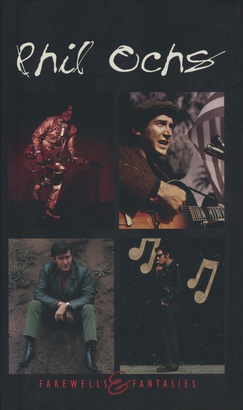
Farewells & Fantasies is the 1997 posthumous box set of the work of singer/songwriter Phil Ochs, chronicling his life and career in music from 1964 through 1970. With its non-chronological running order, it plays like three separate albums, each showcasing a different side of Ochs. The compilation was produced by Gary Stewart, Michael Ochs and Meegan Lee Ochs. Liner notes include a foreword by Meegan Lee Ochs, "The Sound of Freedom Callin'" by Michael Ventura and "Song of a Soldier: The Life and Times of Phil Ochs" by Mark Kemp, track-by-track explanations by Ben Edmonds, discography, selected bibliography, and many photographs, some of which are from the family's private collections. The box set is dedicated to a friend, co-writer, and inspiration to Phil Ochs, Bob Gibson, who died while the box set was in production. Its title comes from the back of Ochs' LP Tape from California.
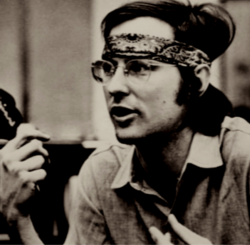
Joseph Hunter Byrd, Jr. is an American composer, musician and academic. After first becoming known as an experimental composer in New York City and Los Angeles in the early and mid-1960s, he became the leader of The United States of America, an innovative but short-lived band that integrated electronic sound and radical political ideas into rock music. In 1968 he recorded the album The American Metaphysical Circus, credited to Joe Byrd and the Field Hippies. After working as a record producer, arranger, and soundtrack composer, he became a university teacher in music history and theory.
"He Was a Friend of Mine" is a traditional folk song in which the singer laments the death of a friend. Ethnomusicologist Alan Lomax was the first to collect the song, in 1939, describing it as a "blues" that was "a dirge for a dead comrade."
"Carmelita" is a country rock song written by Warren Zevon. The song was originally recorded by Canadian singer Murray McLauchlan on his self-titled album of 1972. Zevon himself recorded it four years later, in 1976, on his self titled album. Linda Ronstadt recorded a well known version in 1977, and various covers have followed. These include a folk version by infamous punk rocker GG Allin - a version rumored to feature Linda Ronstadt herself on backing vocals - and a later rendition by the folk-punk group Lost Dog Street Band. Flaco Jimenez recorded a version featuring Dwight Yoakam for his 1992 album Partners. More recently, it’s been recorded by punk bands The Copyrights and FIDLAR.
"Outside of a Small Circle of Friends" is a song by Phil Ochs, a U.S. protest singer from the 1960s. "Outside of a Small Circle of Friends", which was originally released on Ochs' 1967 album Pleasures of the Harbor, became one of Ochs' most popular songs.

What's That I Hear?: The Songs of Phil Ochs is a 1998 tribute compilation to the music of the late Phil Ochs. The various performers cover several generations of Ochs' admirers. All profits from the album's sales were divided equally between the non-profits, the ACLU Foundation of Southern California and Sing Out! Magazine.
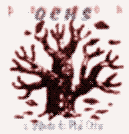
Poison Ochs: A Tribute to Phil Ochs is a tribute compilation to the music of the late Phil Ochs. Ochs' songs, which are generally thought of as folk music and folk rock, are performed by musicians associated with indie rock and experimental rock.
"Crucifixion" is a 1966 song by Phil Ochs, a US singer-songwriter. Ochs described the song as "the greatest song I've ever written".
"Cross My Heart" is a 1966 song by Phil Ochs, an American singer-songwriter best known for the protest songs he wrote in the 1960s.
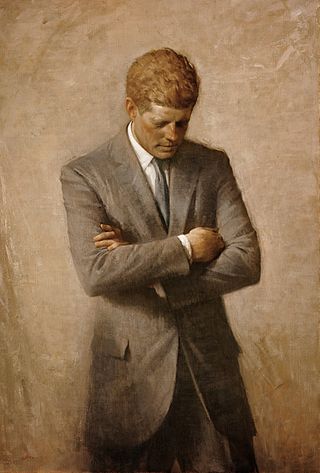
Cultural depictions of John F. Kennedy, the 35th American president, include films, songs, games, toys, stamps, coins, artwork, and other portrayals.
